MercoPress. South Atlantic News Agency
Tag: Andrea Clausen
-
Thursday, August 31st 2023 - 13:38 UTC
Consistent decline of biomass forces Falklands early closure of Loligo season
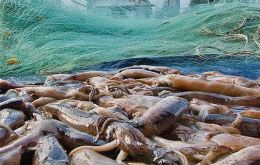
The Falkland Islands Fisheries Department (FIFD) conducted a pre-season survey for the winter Loligo ‘X’ licence season, working in close partnership with local companies. The survey results showed the lowest winter pre-season survey biomass estimates since 2008, a total of 19,859 tons.
-
Friday, June 16th 2023 - 10:14 UTC
Falklands: Record Loligo catch, 53,578 tons, fifth year in a row
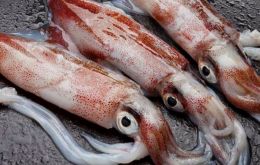
Falkland Islands Director of Natural Resources Dr. Andrea Clausen reported there was another high catch of Loligo squid during this year’s first season, the fifth year in a row. Dr Andrea Clausen said in her report for the Fisheries Committee, meeting on June, that the total catch of Loligo had been 53,578 tons.
-
Saturday, March 11th 2023 - 23:48 UTC
2022 Was a Boom Year For Falklands Squid and Finfish Fleets
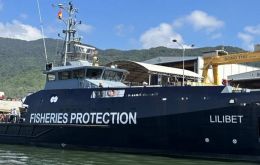
Fisheries authorities in the Falkland Islands have said that 2022 was a bumper year for the squid and hake fishing fleets licenced by the territory. Sixteen ships caught a remarkable 101,166 tonnes of loligo squid; a catch that was exceeded only in 1989 when 118,120 tonnes were landed, although that record catch was achieved by almost three times as many ships.
-
Tuesday, December 20th 2022 - 12:32 UTC
Non native species commercial farming back in the Falklands debate
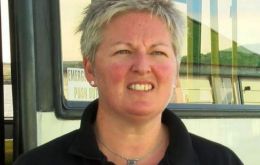
Responding to a question submitted by Sally Poncet, MLA Teslyn Barkman confirmed at the public meeting last week that there was no draft legislation to ban open pen large-scale salmon farming.
-
Friday, November 4th 2022 - 10:06 UTC
Falklands' largest Loligo catches since 1989, but world conditions have changed dramatically

Falkland Islands have experienced an extraordinary Loligo year with catches reaching 101,073 tons in the two season, 54,417 in the first and 43,216 in the second. However great volumes also have their shortcomings, particularly since Falklands' fishing industry this year has had to face dearer fuel and transport costs, and not all the catch has been sold.
-
Thursday, June 30th 2022 - 09:34 UTC
Falklands new fisheries patrol vessel name: “Lilibet” in honor of Queen Elizabeth
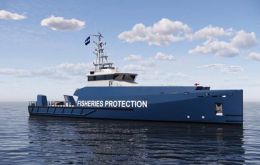
The Falkland Islands Government's new Fishery Patrol Vessel (FPV) provided under a 15-year contract by Seagull Maritime Limited, beginning in 2023, finally has a name, “Lilibet”. The name was put forward by schoolchild Aimee Walker following an open competition at both Falkland Islands Schools in May.
-
Saturday, November 6th 2021 - 09:38 UTC
UK Overseas Territories in support of COP26 and marine biodiversity
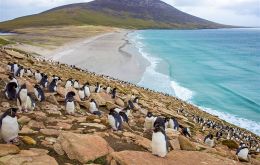
The Association of United Kingdom Overseas Territories has published a joint statement in support of COP 26 and its commitment to protecting 30% of the world's oceans by 2030. The UK and its OTs are described as the world's fifth-largest marine estate.
-
Monday, June 14th 2021 - 01:19 UTC
Lack of regional cooperation on fisheries could have ‘disastrous outcomes’ on Falklands finfish fishery

An independent study of the Falkland Islands finfish fishery has found that lack of international cooperation over fish stocks straddling international boundaries to be one of ‘the most constraining factors to sustainable ecological and economic management of the [Falklands’] finfish fishery,’ adding that ‘it is also likely to have disastrous outcomes; a prediction supported by the current status of many, although not all, of the finfish stocks.’
-
Monday, May 10th 2021 - 06:08 UTC
Falklands closes first Loligo season earlier; successful catch anticipated

The Falkland Islands Loligo (Falkland Calamari) fishery, which holds two seasons a year, closed its first season of 2021 early – the northern part of the box on April 14 and the south on April 28, three days before the planned last day of May 1.
-
Saturday, March 6th 2021 - 09:30 UTC
Falklands: lively debate on the possibility of a salmon farming industry

The Falklands ocean coastal ecosystems are one of its biggest assets and, “its value is beyond measure,” commented Islander Josh Peck speaking against the introduction of a salmon-farming industry to the Falkland Islands, at last Tuesdays workshop on an environmental strategy held at the Chamber of Commerce, as reported by the Penguin News.
